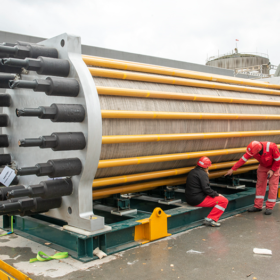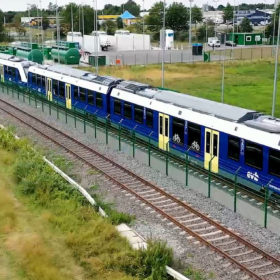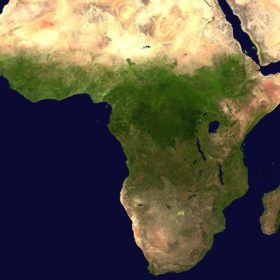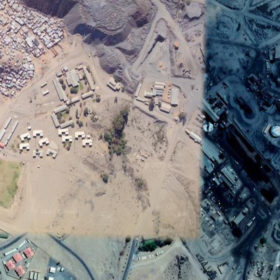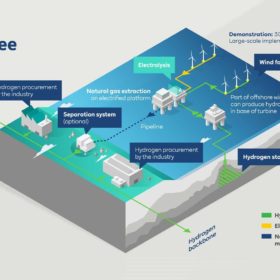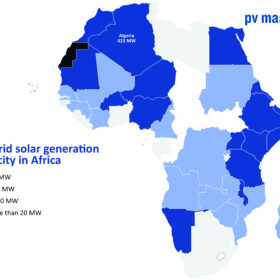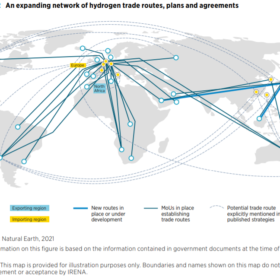COP27 was a crucial step forward for hydrogen – here’s why
Three import deals signed by the EU at Sharm El Sheikh during this month’s COP27 summit show the European Union is serious about harnessing green hydrogen for its heavy industry, and about distributing the fruits of the energy transition on an equitable basis.
HDF Energy wants to build utility scale solar hydrogen project in Namibia
The project consists of an 85 MW solar park and a green hydrogen production unit. The facility should begin commercial operations in 2024.
The Hydrogen Stream: World’s largest electrolyzer to be deployed in Norway
HydrogenPro is set to install the world’s largest electrolyzer in Norway, while Siemens is preparing to commission Germany’s second biggest electrolyzer.
The Hydrogen Stream: Germany launches world’s first operating hydrogen trains
Germany has launched the world’s first operational hydrogen trains and US researchers have presented a novel design for a tubular PEM fuel cell. ABB and Hydrogen Optimized, meanwhile, have expanded their strategic ties and Slovakia has moved forward with a major gas-blending pilot project.
‘African countries must unite to establish a green hydrogen economy’
Only by working together can African nations overcome the obstacles to exploiting their abundant renewables resources and producing affordable green hydrogen – for use at home and in a European economy keen to wean itself off Russian gas, an online event has been told.
Zinc miner goes solar as African Development Bank pushes off-grid finance
A business based at a Namibian mine has signed a 15-year power purchase agreement which will back the construction of a 5.4MW solar project. Elsewhere, the AfDB wants to roll-out solar panels to provide electricity access to six million people across six nations over the next six years.
The Hydrogen Stream: Offshore green hydrogen project in the Dutch North Sea
As research into non-rare metal catalysts continues, companies in northwest Europe are working on an offshore green hydrogen demonstration project, the first European data center to run on green hydrogen, and on hydrogen-based solutions for container transport. Meanwhile, European institutions are prepping for stronger hydrogen collaboration with Africa.
Botswana-Namibia green hydrogen project expands to 5GW
The raised ambition of an already huge renewables-powered hydrogen project in the Southern African nations vividly demonstrates the hydrogen and clean energy potential of a continent which accounted for just 0.5% of the world’s new solar capacity last year, according to trade body AFSIA’s annual report.
Green hydrogen could disrupt global trade, bilateral energy relations
While there are still many uncertainties as to the way in which hydrogen trade might evolve and change economic ties and political dynamics between countries, experts agree that green hydrogen can bring winds of change to the global energy arena. According to the International Renewable Energy Agency, significant geoeconomic and geopolitical shifts are just around the corner.
Nigeria franchising out sections of power distribution network
The move will encourage private sector renewables companies to be part of the national energy industry, a representative of the regulator told a recent webinar which considered how to accelerate clean energy roll-out in Africa.


